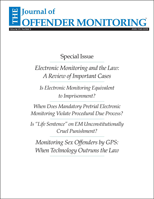How Connecticut State and Federal Probation Innovated Credibility Assessment Testing of Sex Offenders During COVID
Author: Erika Thiel, LPC .
Source: Volume 34, Number 02, Fall/Winter 2021 , pp.9-10(2)

< previous article |next article > |return to table of contents
Abstract:
In 2017, Connecticut’s Federal Probation was challenged with complaints from clients who failed their polygraph examinations. These clients insisted the results were inaccurate and the test flawed. Federal Probation had to investigate each failed exam—even if the results were not being contested by the client. However, because of the increase in workload, Federal Probation looked for an alternative to confirm a deceptive test prior to investigating using a secondary testing method. CTPSB turned to ocular-motor deception testing, commercially available as EyeDetect since 2014, a technology based on the premise that lying is cognitively more demanding than is telling the truth, and such increases in cognitive load cause involuntary changes to the eyes and reading behaviors. This article reviews the successful use of EyeDetect by The Connection Inc. (TCI), a nonprofit organization based in Middletown, CT that offers community-based treatment programs focused on behavioral health, family support, and community justice, including for Connecticut’s Court Support Services Division (CSSD) and the state Department of Correction (DOC). Using EyeDetect allowed Connecticut State and Federal Probation to administer more tests daily, validate test results, and permit testing of clients previously unsuitable for polygraph exams due to medical or mental health.Keywords: EyeDetect; ocular-motor deception testing; polygraph examination
Affiliations:
1: The Connection Inc. .